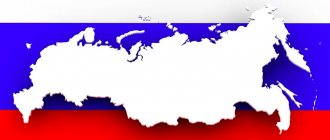History of appearance
Mikhail Zoshchenko wrote his most famous work in 1925. This is the time of the NEP, when life in the country was actively being rebuilt after the revolution and the Civil War . Such changes affected the Russian language, after which the problem of preserving its natural frequency became urgent. Initially, Vladimir Mayakovsky addressed this issue, and subsequently the work “Monkey Language” appeared, which is characterized by a clear plot and ring composition.
Zoshchenko’s “Monkey Language” received excellent reviews from critics; almost all famous authors without exception spoke about it in admiring tones. However, this work did not initially receive proper distribution among the reader, which is explained by the complexity of the issues raised by the author, which were incomprehensible to the majority of the population.
Only after almost half a century was this story appreciated, and at the end of the last century it was even included in the school curriculum.
Our experts can check your essay according to the Unified State Exam criteria
SEND FOR CHECK
Experts from the site Kritika24.ru
Teachers of leading schools and current experts of the Ministry of Education of the Russian Federation.
Makes fun of idle talk and ignorance in conversations.
The text is written in the first person, by a narrator telling readers a “Very smart and intelligent conversation” between his two neighbors. He was delighted, because he thought that if people use a lot of words that are incomprehensible and unknown to many, then they are well-read and smart.
Not only the narrator, but also the very two people whose conversation is being discussed thought so.
6 pages, 2892 words
Reasoning based on Ushinsky's statement of every word of the language
... one generation after another, the fruits of deep heart movements, the fruits of historical events, beliefs, views, traces of lived grief and lived joy - in a word, carefully preserves the entire trace of its spiritual life in the people's word. The language is there... the work is scored zero points. Write an essay carefully, legible handwriting. 1) Our acquaintance took place when Oska was already in school. (2) I came to see my mother...
Yes, in order to look like educated intellectuals, the narrator’s neighbors really use a lot of “mysterious” words. But only these words remained “mysterious” even for the “intellectuals”. Men, not knowing their meaning, inserted these words into their speech under the guise of intelligent conversation, so they showed themselves to be complete ignoramuses. Despite this, it is clear that these people are uneducated. They have difficulty connecting foreign terms; colloquial words are visible in their speech.
M. Zoshchenko boldly calls the dialogue of the main characters a dialogue of two monkeys. Characters used foreign words without understanding their meaning, believing that this made their speech more respectable. But in reality they were just using Monkey Tongue.
The author strives to convey to the reader the idea that you should not insert foreign words into your speech, especially if you do not even know their meaning. There is no need to litter our already rich Russian language with “extra” terms. With such a vivid example, he showed how funny and stupid it can look from the outside.
The author helped me see the problem of the existence of foreign words in the Russian language. Having shown how ridiculous this is, it's worth thinking about what you say to others. And if you learn a new word, it is better to immediately find out its meaning so as not to end up in the same situation as the participants in the dialogue.
I would like to believe that readers will think about the problem raised in the text and try to be smart about their speech and vocabulary. Expanding your vocabulary does not mean mindlessly using words you heard somewhere. You need to use them correctly in your speech.
You can view all essays without advertising in our
To display this essay, enter the command /id83905
Examples of similar educational works
Language. Speech. About the contamination of the native language
... 2013 version Contamination of the Russian language with jargon, foreign words, obscene language - this is the problem that the writer considers in the text. Tatyana Tolstaya in her essay discusses the clogging and simplification of the Russian language. Bringing bright...
What does the word honor mean for a modern person?
...a man of honor. However, not all people clearly understand what it means to be a person of honor and why it plays a special role in our society now. First, you need to figure out what this mysterious word “honor” means. ...
Analysis of Zoshchenko's story monkey language. Analysis of M. Zoshchenko’s story “Monkey Language”
... Zoshchenko (Mikhail Zoshchenko) Monkey language This Russian language is difficult, dear citizens! The trouble is, what a difficult one. The main reason is that... the attention of readers to the need to preserve the purity of the Russian language and the inadmissibility of polluting it with unnecessary...
Stories by M. M. Zoshchenko in school study
... happened in it in the post-revolutionary years. Zoshchenko’s satire is directed against the vices of society: philistines, ordinary people, social ... reading. In addition to the plot and themes, researchers of Zoshchenko’s work noted the peculiarities of vocabulary in children’s stories. ...
Characters and Narrator
The narration is told from the perspective of an uneducated, semi-literate person who believes that the Russian language is extremely difficult, largely due to the large content of foreign words in it. The author seems to show that people create problems for themselves by borrowing incomprehensible expressions from German, French and English, which only make communication more difficult. The narrator is a direct participant in the events, while his speech is far from literary and extremely simple.
The main characters of the work are:
- narrator ;
- 2 unnamed interlocutors;
- an invisible speaker speaking at a meeting.
Two interlocutors are participating in some kind of meeting and are sitting next to the narrator. Both characters use numerous foreign words in their speech, without completely understanding their meaning. They believe that this makes them appear educated and smart, but their incorrect monkey language makes them look stupid and ignorant.
Simple colloquial words and expressions coexist with borrowed vocabulary, and many phrases are simply meaningless.
There is another character in the work - a speaker speaking at a meeting. Since his speech is not given in the story, this person can only be judged by the reviews of the narrator and his neighbors. In their opinion, the speaker is an intelligent man who uses numerous foreign borrowings in his speech. And yet his speech is illiterate, containing various incomprehensible words that are used completely inappropriately.
Zoshchenko deliberately depersonalized his main characters; in his story, the characters do not have an appearance, names or character descriptions. This allows you to concentrate the reader’s attention on the use of borrowed words, which make speech illiterate, stupid and ugly. Thus, the author wants to draw attention to the then pressing problem of preserving the purity of the Russian language.
Both main characters communicate in an incomprehensible mixture of terms, simple folk words and borrowings from foreign vocabulary. An ordinary person who found himself next to them could simply not understand their speech, which from the outside seemed just a set of meaningless sentences. The author showed that such conversations, despite the apparent intelligence, are simply a pointless pastime, which also kills the real Russian language.
Based on the text by M. Zoshchenko “Monkey Language” (Unified State Examination in Russian)
The Russian language contains not only commonly used words - those that are known to all people who speak Russian. There are also words of limited use or not commonly used, which, on the contrary, are not known to many. But sometimes it happens that people, who do not even know the meaning of many “beautiful” words, use them in their speech in order to show a different side of themselves.
Mikhail Zoshchenko in his text “Monkey Language” raises the problem of clogging the Russian language with foreign words.
Analysis and questions raised
The main idea and theme of this work is the problem of modern society, which was expressed in the contamination of the Russian language and total lack of education. Every ignorant person in those days wanted to seem like an important person, so he used borrowed foreign vocabulary, trying to show himself as smart and intelligent. The writer makes the main characters of this story two officials who, in their opinion, had an intelligent conversation at the meeting, replete with a huge amount of clericalism, unnecessary words and borrowings.
Topics raised by the author in the story:
- loss of identity of the Russian language;
- illiteracy of the population;
- ignorance and arrogance.
The author, with the title of the story, has a negative attitude towards such people who use borrowings and spoil the native Russian language. Zoshchenko comically compares illiterate officials with noisy monkeys, who in the eyes of others try to look like authoritative and intelligent creatures.
Using foreign words in their speech, the author places a precise satirical emphasis on the vivid characteristics of the characters.
The choice as the setting of an abstract meeting at which an important report was made emphasizes that the phenomenon described in the story with the borrowing of foreign words is typical at that time. According to the author, such meetings took place in those years every day in almost every organization. Even if you carefully read the speech, you can hardly understand the main meaning of the conversation. The huge number of incomprehensible foreign words has led to the fact that the original pure Russian language began to be perceived as an atavism, gradually becoming a thing of the past.
M.M. Zoshchenko accurately and succinctly titled the story “Monkey Language.” Why?
Indeed, new words hitherto unknown to the common man - socio-political vocabulary - poured into colloquial speech after the 1917 revolution. Most often these are foreign words (borrowed). The voice of the crowd, the voice of the street mixed with “arrogant” (“foreign”) words, the meaning of which was unclear, but attractive to the new man of the new era with its unique mystery.
The new man wanted to “shine” with words in his speech in order to correspond to the new time - the time of a radical break in everything old and familiar. It seemed to the common man that borrowed vocabulary made him more significant and sublime.
Monkeyism, in essence, is blind imitation of someone, copying someone.
- Type of narration - tale. It is focused on modern live monologue speech by a narrator who came out
- The narrator is a simple person, not far removed from his heroic characters. He is a “product” of his grandiose era. He is dissatisfied with the dominance of foreign words in speech, calls them “foggy”, “arrogant”, i.e. he is a fighter for the purity of language.
- The plot of the story.
- Complaining that “this Russian language is difficult... The trouble is, it’s so difficult.”
- The reason is a huge number of foreign words (“To hell”)
- In French, “everything is good and clear” (“French, natural, understandable words”).
- Russian speech is “sprinkled with words with a foreign, vague meaning.”
- Result: “this makes speech difficult, breathing is impaired and nerves fray.”
- Dialogue between neighbors at a meeting
- The narrator states that the conversation is “very smart and intelligent. But he is a man without a higher education, he understood it with difficulty and flapped his ears.”
- The narrator’s hard-won truth: “It’s difficult, comrades, to speak Russian!” - sums up observations of the dialogue between neighbors at the meeting. And it’s difficult to understand anything in this linguistic emptiness.
- Two linguistic elements collided in this work:
- colloquial speech, vernacular
- book speech (official business) and socio-political vocabulary. The combination of colloquial words with business vocabulary (clerical language) is the basis for creating a comic situation.
- Colloquialisms: “to hell”, “suck up”, “theirs”, “flapping his ears”, “ali”, “probably”, “from empty to empty”, “from ted”, “I admit”, “having come out”, “forever” .
- Violating the norms of literary language creates an unimaginable comic effect (“an artistic image of a mistake”).
Relevance of the work
The work of Mikhail Zoshchenko is a currently relevant story , especially since in the last few decades there has been a tendency towards the appearance in the Russian language of various borrowed words that do not carry any semantic load and only clog up speech with phraseological units of foreign origin. The author believes that language change is a natural process, however, one should observe this measure, if using such foreign expressions, then only if they correspond to the context. Otherwise, speech consisting of borrowings looks stupid and meaningless.
Zoshchenko also in his story addresses the topic of new people who came out during the NEP. These are former philistines, merchants and industrialists who considered themselves the cream of society, while not being the intelligentsia and belonging to the ignoramuses. It was they who most often used such monkey language, devoid of meaning, but showing their importance, intelligence and intelligence.
Currently, high school students write essays on this story on the topic of analysis of Zoshchenko’s “Monkey Language,” and in literature classes they prepare reading diaries and analyze in detail the themes of such short stories. This is a short work that can be read in full and in key passages, which provides excellent examples of Newspeak with a huge number of borrowings .
Relevance of the story
Zoshchen’s work “Monkey Language” is still relevant today. After all, the Russian language is so rich and flexible that even now new borrowed words appear in it every day. And now you can meet people who, without knowing the lexical meaning of the word, use it. They do not notice the measures in their use and thus show their lack of education.
It is worth remembering that the Russian language has a lot of beautiful words that allow you to express the whole gamut of feelings and emotions, paint a verbal picture and convey information, so the use of borrowed ones should be appropriate and in moderation.
Monkey tongue
This Russian language is difficult, dear citizens! The trouble is, what a difficult one.
The main reason is that there are too many foreign words in it. Well, take French speech. Everything is good and clear. Keskose, merci, comsi - all, please note, purely French, natural, understandable words.
Come on, come on now with the Russian phrase - trouble. The whole speech is peppered with words with a foreign, vague meaning.
This makes speech difficult, breathing is impaired and nerves fray.
I heard a conversation the other day. There was a meeting. My neighbors started talking.
It was a very smart and intelligent conversation, but I, a person without a higher education, had difficulty understanding their conversation and flapped my ears.
The matter began with trifles.
My neighbor, not yet an old man with a beard, leaned over to his neighbor on the left and politely asked:
And what, comrade, will this be a plenary meeting or what?
“Plenary,” the neighbor answered casually.
“Look,” the first one was surprised, “that’s why I’m looking, what is it?” As if it were plenary.
“Yes, be calm,” the second one answered sternly. - Today it’s very plenary and the quorum has reached such a level - just hang in there.
Yah? - asked the neighbor. — Is there really a quorum?
By God,” said the second.
And what is this quorum?
“Nothing,” the neighbor answered, somewhat confused. - I got there, and that’s it.
Tell me, - the first neighbor shook his head with disappointment. - Why would it be him, huh?
The second neighbor spread his hands and looked sternly at his interlocutor, then added with a soft smile:
Now, comrade, I suppose you don’t approve of these plenary sessions... But somehow they are closer to me. Everything somehow, you know, comes out in them minimally on the essence of the day... Although I will say frankly that lately I have been quite permanent about these meetings. So, you know, the industry is going from empty to empty.
“That’s not always the case,” the first one objected. - If, of course, you look at it from the point of view. To enter, so to speak, into the point of view and from the point of view, then yes - the industry specifically.
Specifically, in fact,” the second one sternly corrected.
“Perhaps,” the interlocutor agreed. - I admit that too. Specifically in fact. Although how when...
“Always,” the second one snapped briefly. - Always, dear comrade. Especially if after the speeches the subsection is brewing minimally. Discussions and shouting will not end then...
A man walked up to the podium and waved his hand. Everything fell silent. Only my neighbors, somewhat heated by the argument, did not immediately fall silent. The first neighbor could not come to terms with the fact that the subsection was welded minimally. It seemed to him that the subsection was brewed a little differently.
They shushed my neighbors. The neighbors shrugged their shoulders and fell silent. Then the first neighbor leaned over to the second again and quietly asked:
Who is it that came out there?
This? Yes, this is the presidium. A very sharp man. And the speaker is the first. He always speaks sharply on the essence of the day.
The speaker extended his hand forward and began speaking.
And when he uttered arrogant words with a foreign, vague meaning, my neighbors nodded their heads sternly. Moreover, the second neighbor looked sternly at the first, wanting to show that he was still right in the dispute that had just ended.
It is difficult, comrades, to speak Russian!
The analysis of M. Zoshchenko’s stories completes the study of the section “Satire and humor in literature.” Addressing the themes and issues of this outstanding writer’s stories and researching his poetics will require seventh-graders to attract additional knowledge and skills. This article will help organize independent work of schoolchildren in preparation for the analysis of the story “Monkey Language” by M. Zoshchenko. A.L. Murzina, honored teacher of Kaz, shares her thoughts about the work of this wonderful writer with you. SSR, teacher-methodologist of the NP secondary school “Lyceum “Stolychny”.







